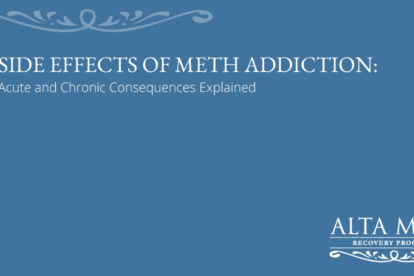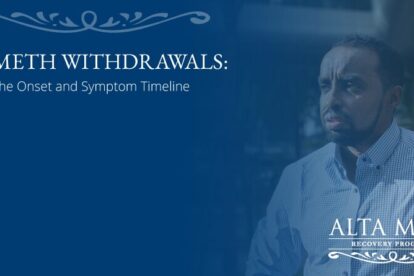
What Are the Most Addictive Drugs?
Addiction is a brain disorder characterized by the compulsion to keep seeking drugs in spite of negative consequences. When individuals habitually misuse substances, they undergo changes in the brain that impact their self-control and their internal reward system. Some substances are more addictive than others and can drive people to give up just about everything that’s important to them so they can keep using the substance.
There are many different substances that can set off a cycle of addictive behavior.
Addictive drugs act on the pleasure center of the brain, causing an inability to control the compulsive use of substances. Some drugs have a higher likelihood of triggering addiction than others.
A drug that is highly addictive makes users feel very good when using it and extremely uncomfortable when its effects wear off. Once drug dependence has set in, a user experiences overpowering cravings for the drug and may be unable to stop using the substance without help.
The Most Addictive Street Drugs
People may experiment with substances obtained illegally on the streets, just to see what effect they might have, or because of social pressure. Often users are seeking an experience of euphoria, relaxation, or an ability to escape from reality for a short period of time and may be surprised at how quickly compulsive behavior sets in or how difficult it is to discontinue the habitual use of a particular substance.
Dependence can happen quickly when some substances are used. The most addictive street drugs include:
- Heroin. A highly addictive drug made from morphine that reduces pain and increases pleasure. The habitual use of heroin causes the user to crave more of it and to experience a lot of discomfort if they try to stop.
- Cocaine/Crack Cocaine. A stimulant drug that can be snorted, smoked, or injected. Cocaine floods the brain with dopamine, an experience users want to repeat or maintain.
- Crystal Meth. A man-made stimulant, the use of which can quickly lead to addiction. Addiction to meth is one of the hardest forms of addiction to treat.
The Most Addictive Prescription Drugs
Many users believe that since prescription drugs can be obtained from a doctor, they can’t be as dangerous as illegal substances; however, chemicals in prescription drugs are often very strong and addictive, and these substances can be dangerous when used in any way other than the way they are prescribed.
Some of the most addictive prescription drugs include:
- Opioids. Usually used to treat moderate to severe pain and can be highly addictive. When misused, they can lead to overdose or death.
- Stimulants. May be prescribed for narcolepsy or attention deficit hyperactivity disorder (ADHD). These drugs are often misused for their energizing effect.
- Central nervous system depressants. Includes tranquilizers, sedatives, and hypnotics. These medications may be prescribed to treat anxiety, sleep disorders, panic disorders, or stress-related conditions. Trying to discontinue use of these drugs can lead to seizures or other unpleasant consequences.
Get Help for Drug Addiction
Alta Mira is a Safe Place to Get Your Life on Track
Other Addictive Substances
Legal substances can be surprisingly addictive. People who become addicted to nicotine may find it’s extremely difficult to stop using. Most smokers need to make multiple attempts to stop before they are successful.
Alcohol is a legal substance that is highly addictive. The compulsion to continue to misuse alcohol can be overpowering, and the harm alcohol does to the lives of those who misuse it can be as bad or worse than illegal substances.
Breaking the Cycle of Addiction
Untreated addiction destroys lives and leads to many devastating consequences. For some users, the progression of addiction ultimately leads to death.
When a person has become addicted to a substance, they continue to use the substance in spite of negative consequences, and in most cases they are unable to quit on their own. A variety of treatment options are available. For many people, the best way to overcome substance use is in a residential treatment facility where detoxification can be medically managed and the patient can learn new methods of coping in a highly structured environment.
An alternative to inpatient treatment is intensive outpatient treatment or partial hospitalization. This is a way of attending multiple sessions of treatment every week while remaining in the home environment.
Determining which is the right method of treatment depends on several factors, including how long the individual has been using the substance, what substance has been misused, and whether there are multiple substances to overcome. If you or a loved one has become addicted to one or more mind-altering substances, talk to your doctor or to an addiction treatment professional to determine which course of treatment that is right for you.






